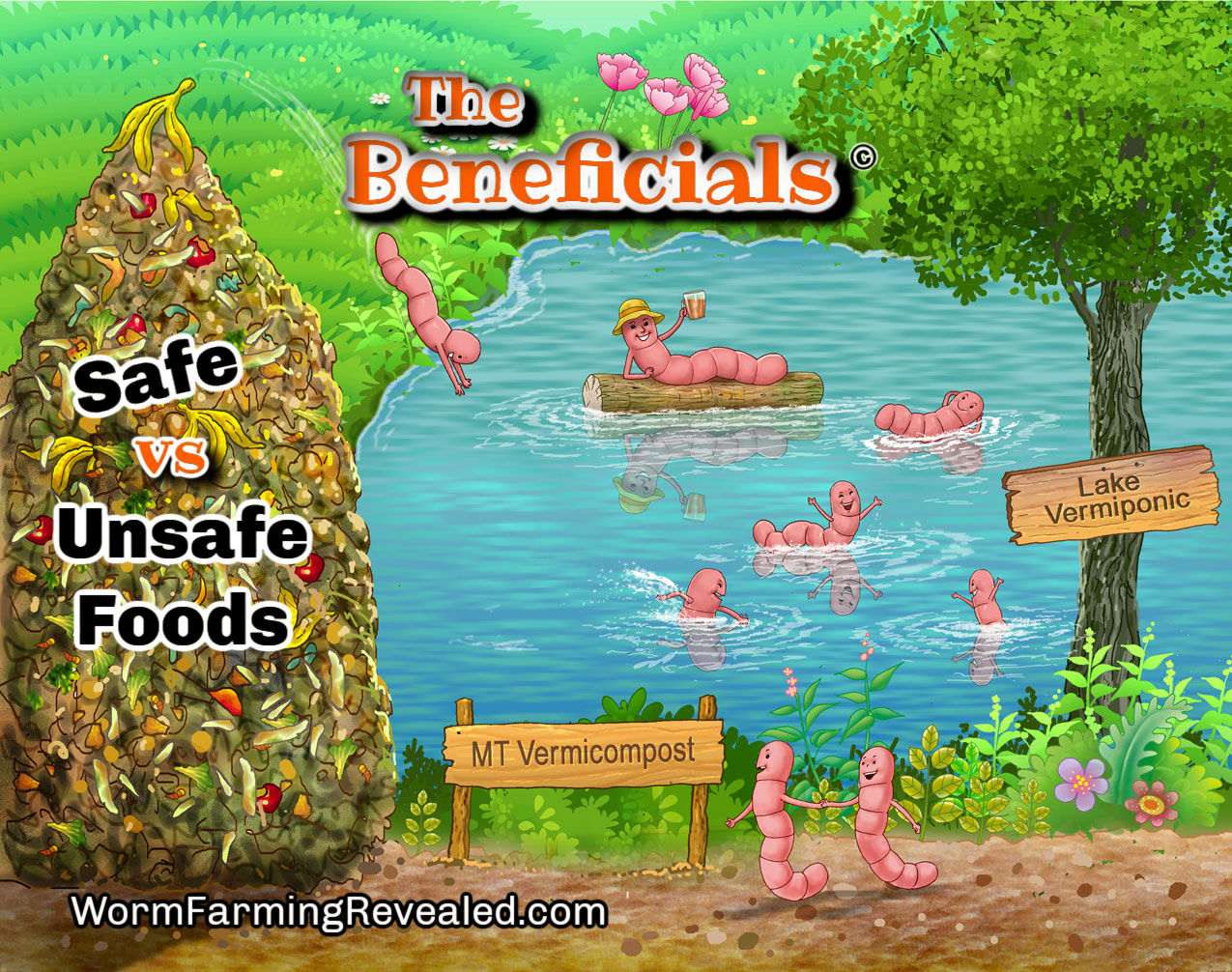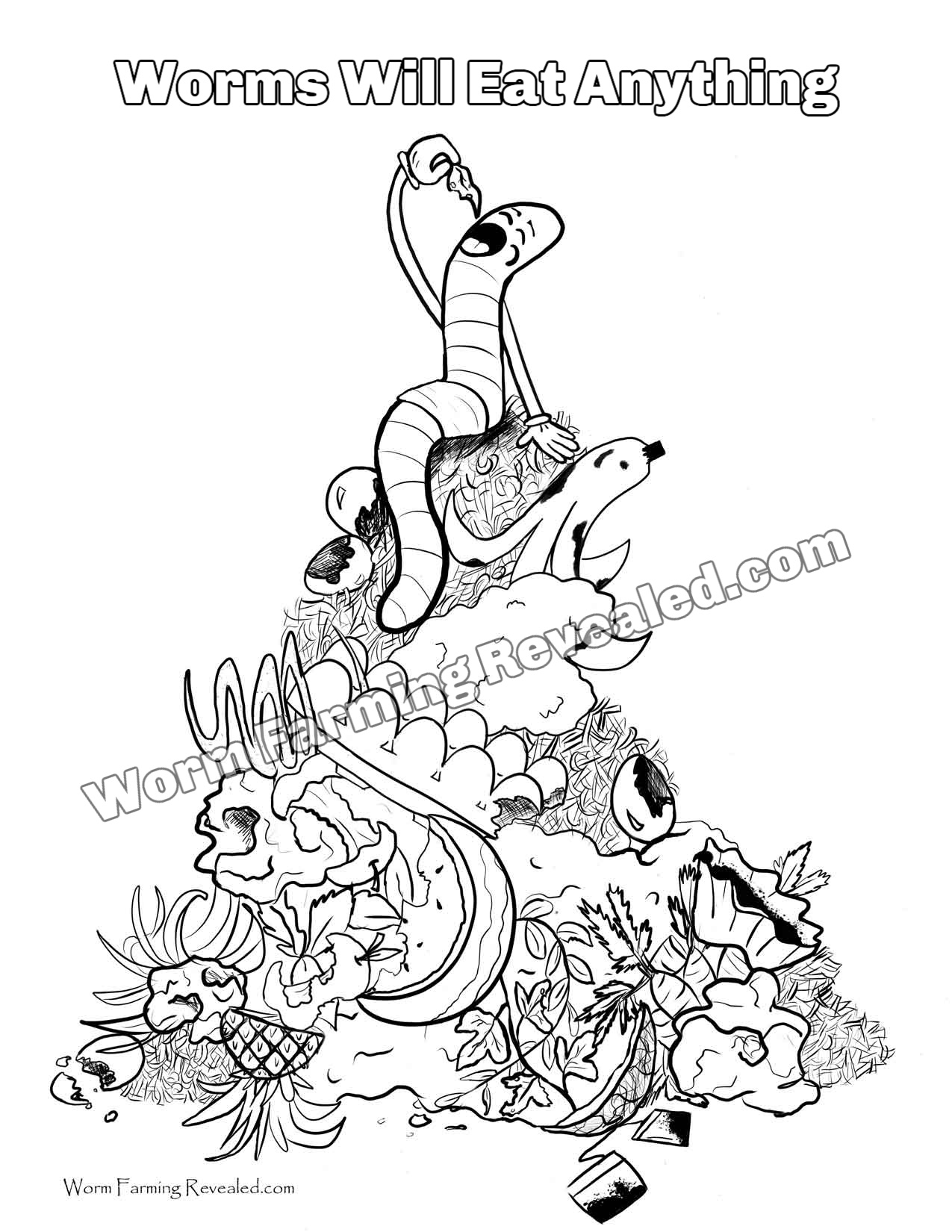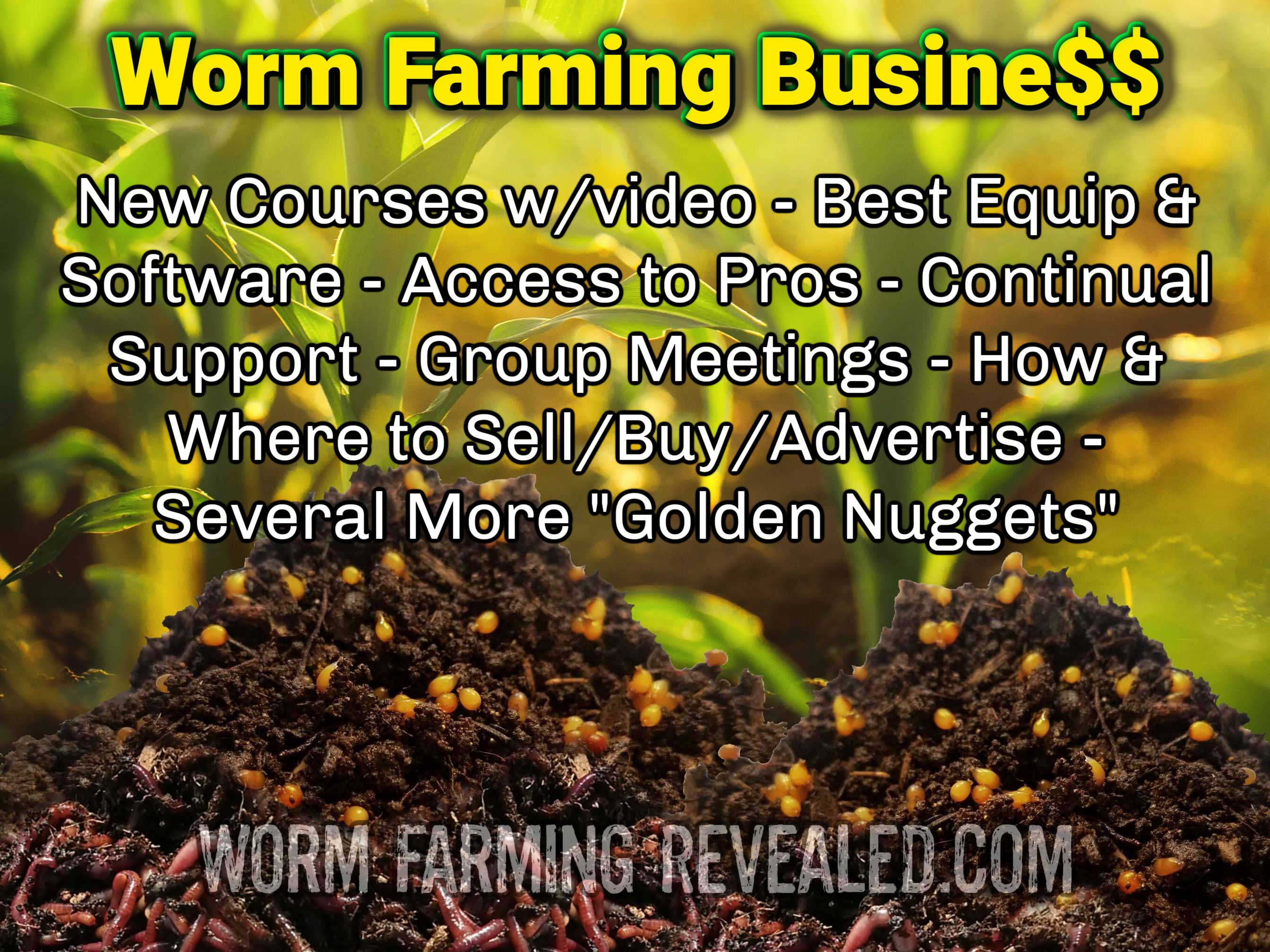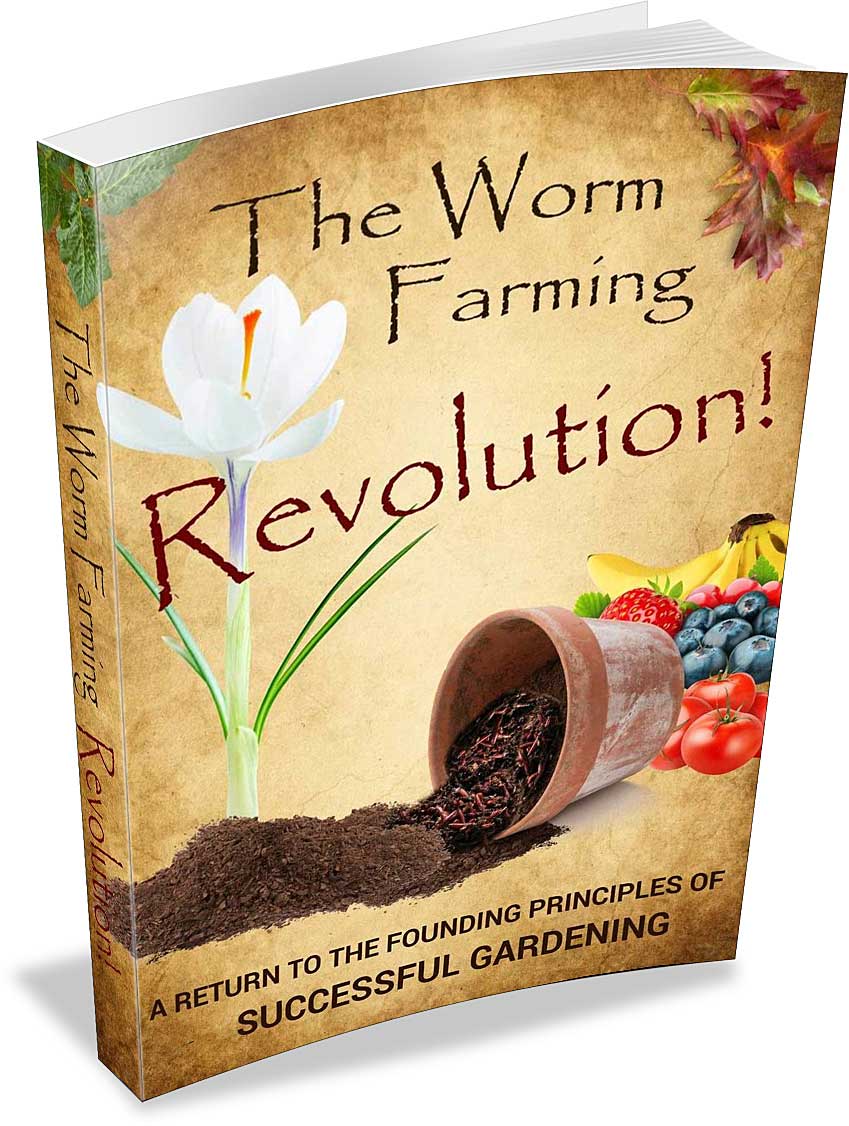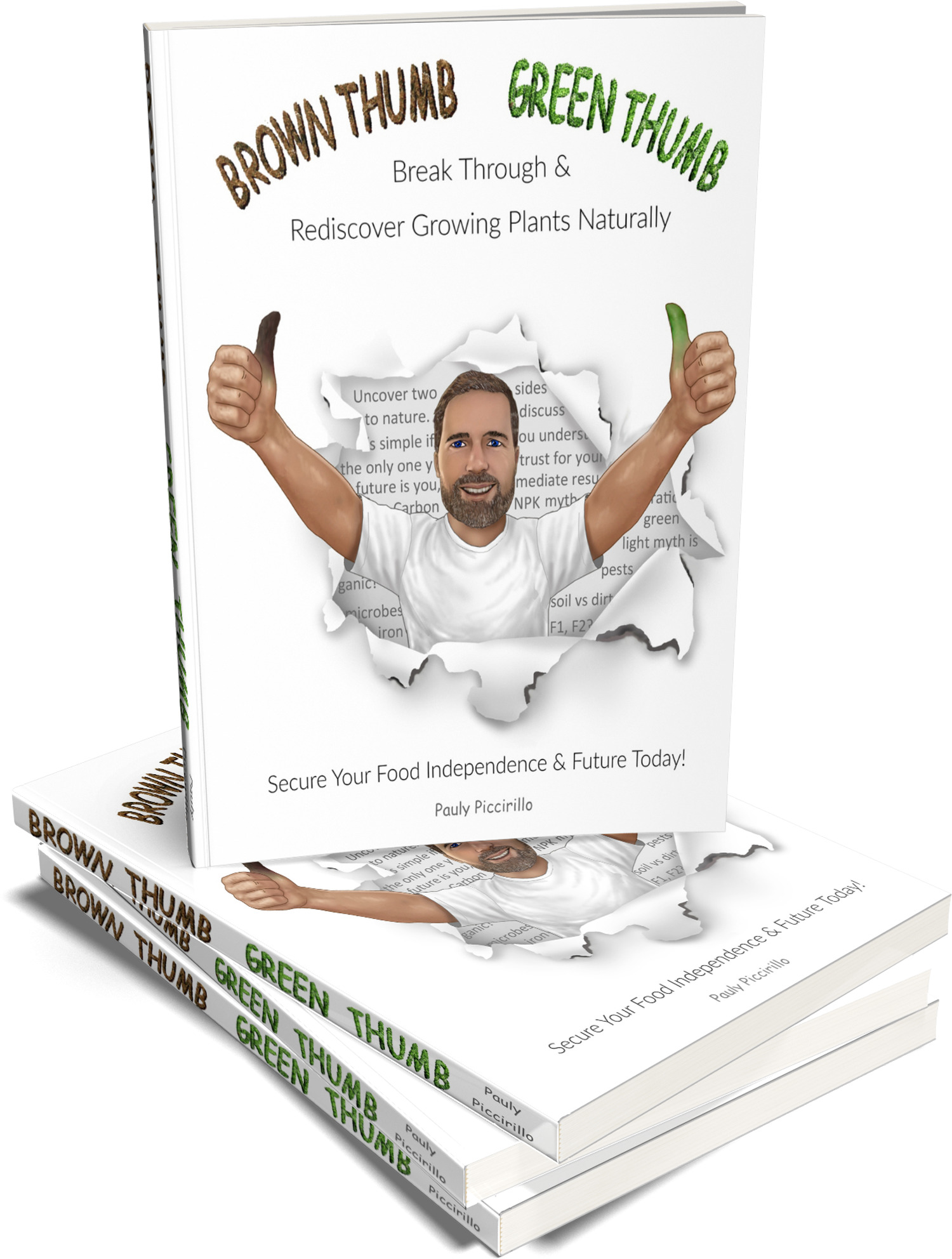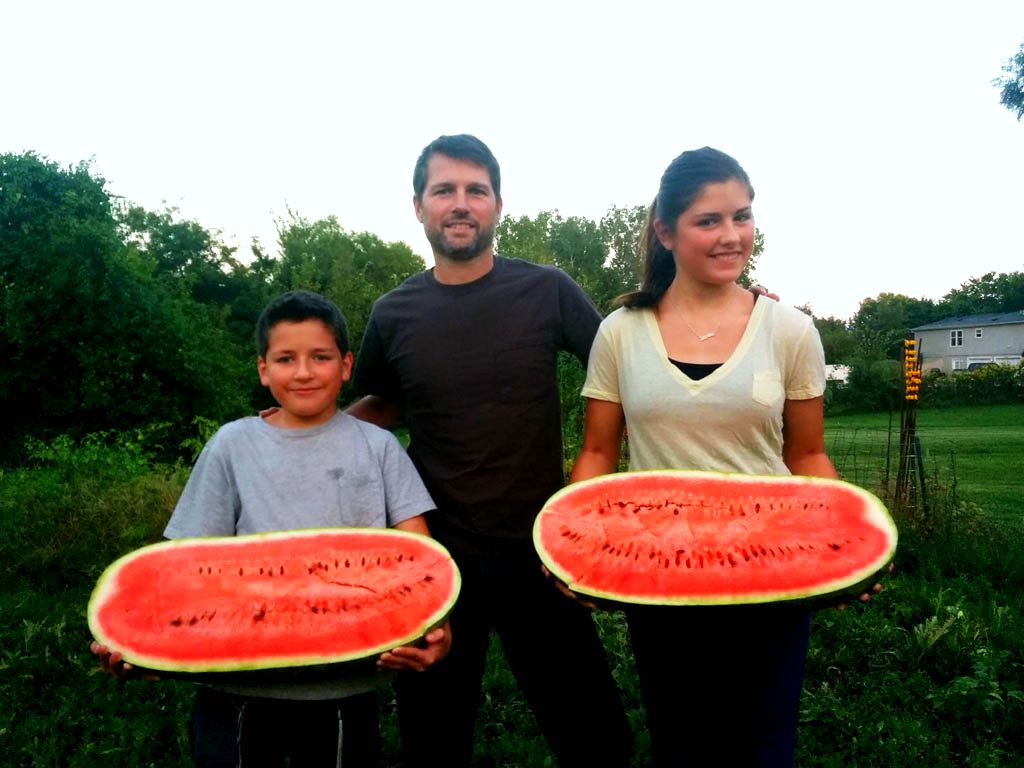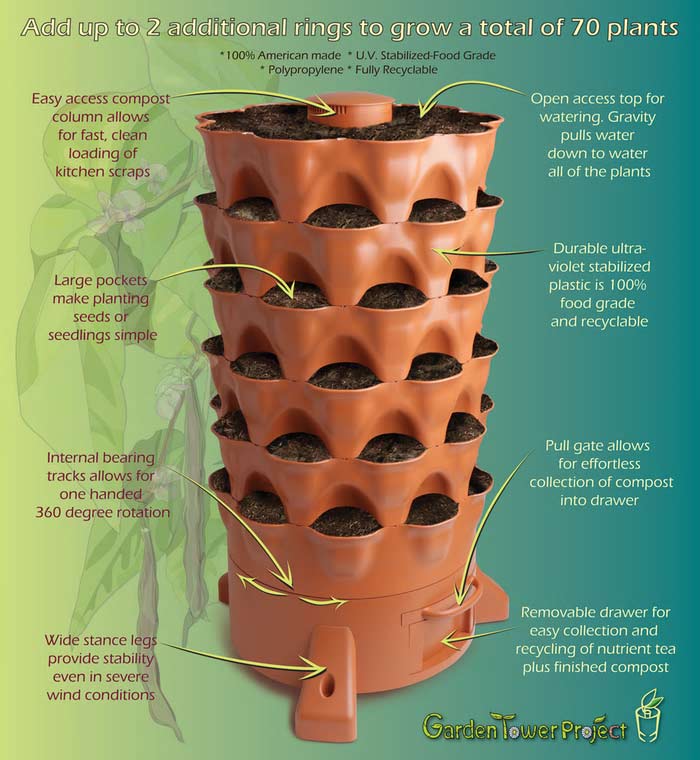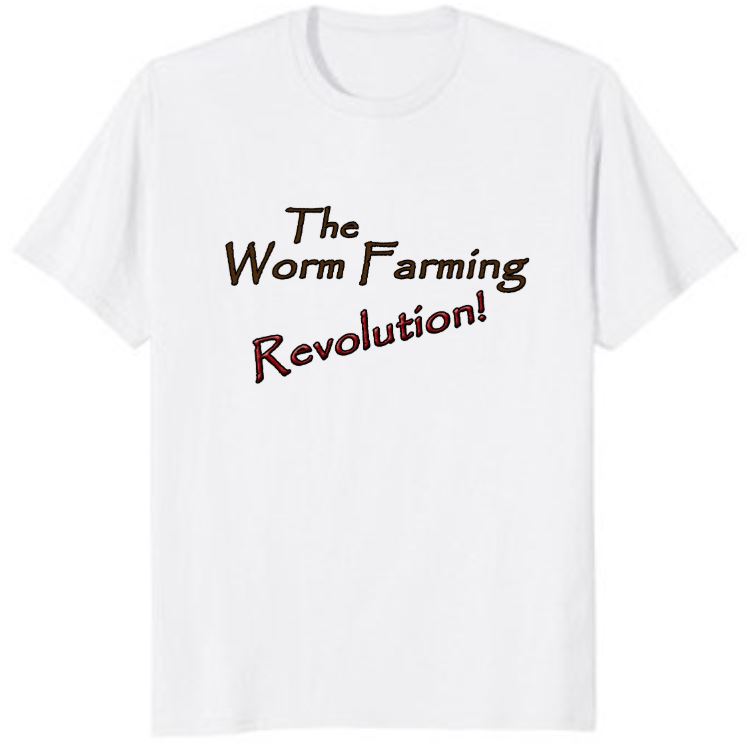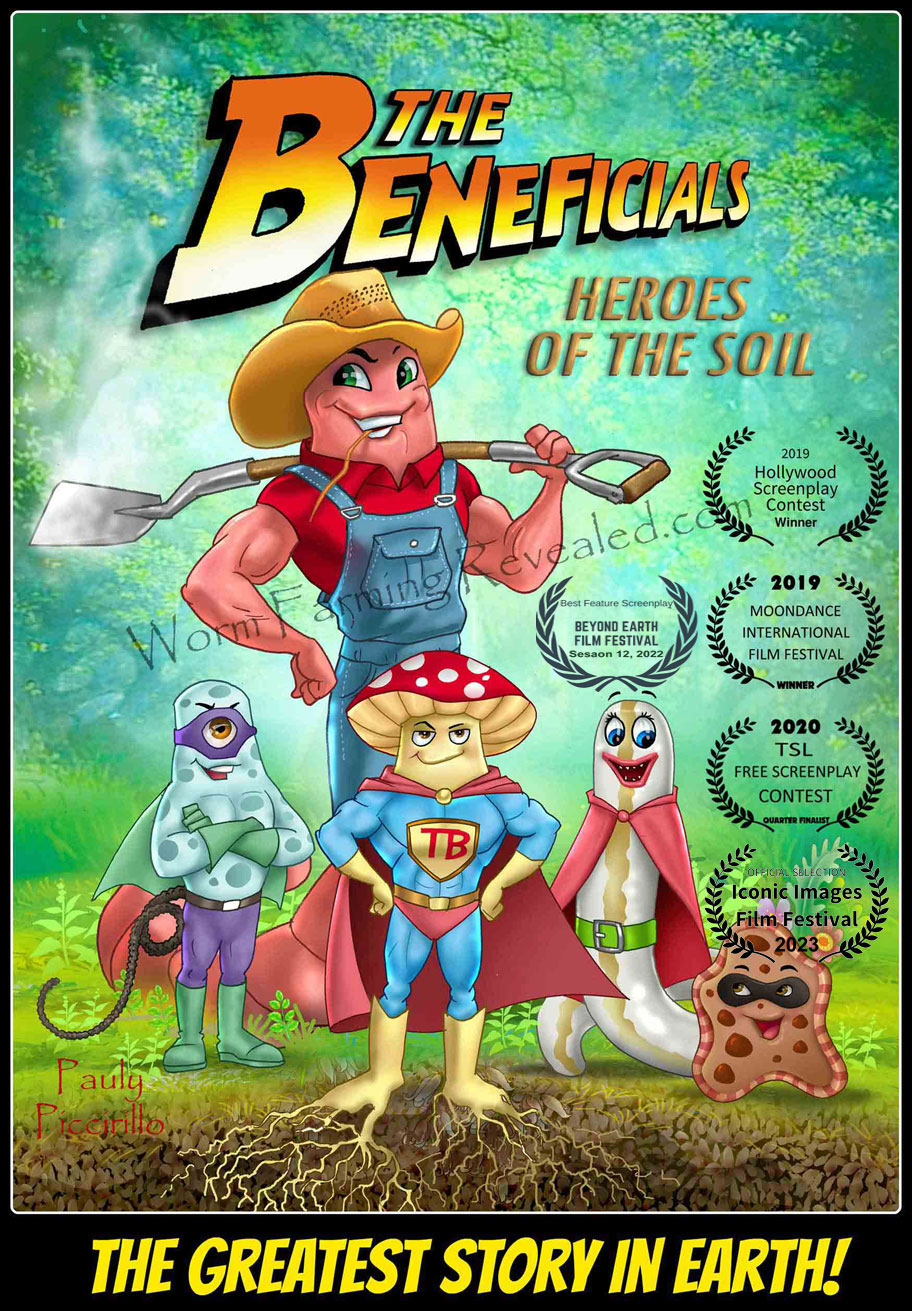Safe
VS Unsafe Worm Food
I’ll discuss the safe vs unsafe worm food below. What I want you to understand, first, about safe vs "unsafe" worm food is...
- Subjective
- Relative, as well as
- Warranted.
This is a topic that MUST be discussed as more and more people become vermicomposters.
There are many perspectives. I’ll address them as best I can because worm food can be almost anything (which is why this topic is extremely warranted) and will be debated for(ever) many years to come.
There's NO such thing as unsafe worm food, IF...
we’re discussing actual food and NOT unnatural foods or worm foods that are poisonous. We’ll get into the "unsafe" food in detail.
Undoubtedly, you’ve read my list of unsafe worm foods, either in the free worm guide, or The Worm Farming Revolution books.
Yes, I too have a list of worm foods to avoid. They just don’t belong in a worm bin, but this is all subjective to you, or more importantly, to your composting worms, or species of worms.
There is fact and fiction behind everything when it relates to worm food. Because, again, worm food is also relative.
Confused yet?
Let’s get into the Safe VS Unsafe Worm Food list, then continue the discussion.
For
the sake of adding way too much information, this is a simple list (but covers
a lot) of worm foods to avoid. I don’t think a discussion of safe worm food is necessary but understood.
Worm Food to Avoid in a Worm Bin:
- Milk or any dairy products
- Meat, fat, bones, leather or fur (no animal products)
- Oily/greasy
substances
Citric, or highly acidic fruits (tomatoes are okay in moderation) - Spicy/hot peppers or plants. Mild and sweet peppers are okay (onions/garlic in moderation, but this will impede the process)
- Salt, sodium, baking soda, baking powder or vinegar
- Hair, or dryer lint (long hair can strangle worms. (I've experienced this)
- Woody materials, straw and tough, fibrous plant stalks
- Fresh needles from coniferous (cone-bearing) trees. Must season first.
- Fresh green leaves or lawn clippings (may get hot, use in moderation)
Many people (even professionals, as well as teachers from universities) have created a list of foods that are "safe/unsafe" for worms and for good reason.
It's not, so much, that certain foods are "unsafe" for composting worms, but more of a guideline for beginners until they understand the fundamentals of feeding composting worms, as outlined extensively in The Worm Farming Revolution.
I have also created a list. It’s important to understand this when knowing
what your goals are for composting with worms.
Here's the problem with blanket statements about safe vs unsafe worm food:
I have seen YouTube presentations where the presenter dumps loads of onions, citrus, milk, yogurt, etc., in a 5 gallon bucket saying that the worms will eat it. They go on to say, "Worms will eat ANYHTHING you put in a worm bin!"
They continue the worm farming presentation, and the crowd seems wowed and overjoyed. I just hope the presenter will be there for them when several noobs have issues that need resolved. I don’t want to see the look on their angry faces.
Composting worms will eat ANYTHING?
This is true, BUT I don't argue this without certain caveats.
"I only caution anyone who is a beginner trying to understand the many habits, behaviors, and fundamentals of composting worms. This also applies to competent, skillful, and experienced worm composters that don’t understand why their worm bin has suddenly spun out of control."
As I've written, many times, worms WILL eat anything, but it doesn't help beginners understand what composting worms need in their natural environment. There is a reason for introducing certain foods in certain rations for certain species, applications, or goals.
This is important to understand as I will explain.
Composting worms will eat manure but not immediately (i.e. fresh). Just as worms will eat citrus, but not immediately. Considering this all takes place in a natural, outdoor setting and unadulterated.
I teach the fundamentals (nature) first, then the testing (scientific), then the playing (anything goes).
Worms WILL eat cow manure, once the manure has been exposed to time, certain types of microbes, and nitrogen has been allowed to neutralize (gas off). If they don’t allow the manure, citrus, onions, etc., to neutralize, it will be acidic (low ph), be caustic to the worms, or the worms simply will not eat it and may avoid it at all costs. This can lead to mass migration (escaping from the worm bin).
This is why I tell beginners and "semi-pros" (3 yrs. or more) to keep certain foods out of the worm bin or to place it in their outside compost piles if they have larger amounts and still want to compost their kitchen scraps.
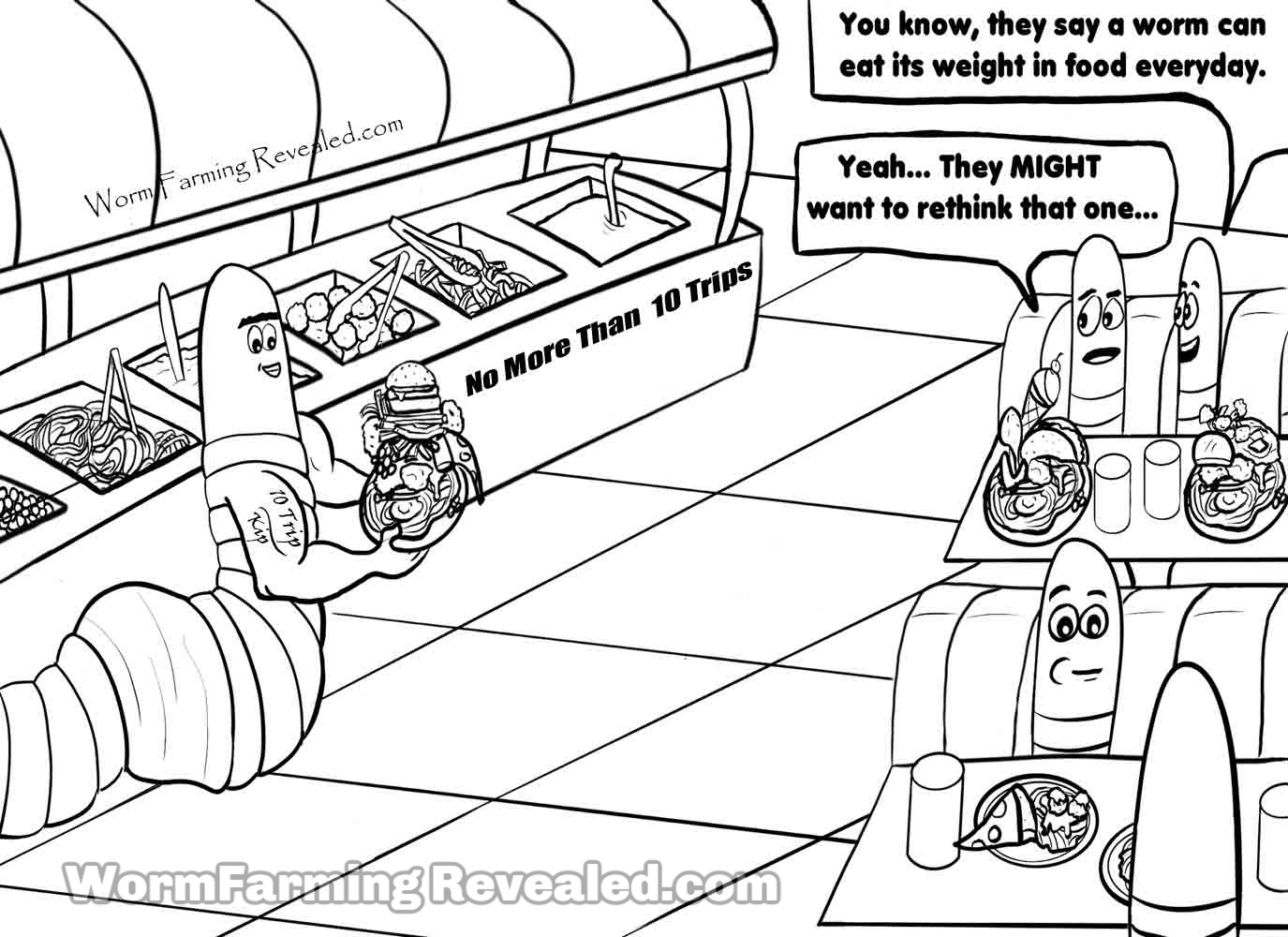
If I told
beginner vermicomposters that it's okay to feed worms onions, jalapeños, salty
pickles, dog poop, lemons, etc., I would have many worm farmers angry at me as
their worms would try escaping or die due to the overwhelming proverbial
"overfeeding". Again, this is generally beginners.
Next, I would have to walk them though the correct way to introduce certain "unsafe" foods, if they wish. Introducing those foods best in small pockets under the bedding is best, But still, why?
Worms WILL eat anything, but I can't just make that blanket statement. It's extremely important for beginners to understand the natural eating habits of composting worms, not only the rations, but many other fundamentals of composting worms.
When you understand THAT, you can go on to feed them almost ANYTHING in the world, even the foods that are on my DO NOT FEED list.
IF, for some reason, something goes wrong, you can refer to the fundamentals of composting worms and natural feeding habits, then correct the issue. I wrote a paper on these simple fundamentals in a PDF file to print. "5-step success to worm composting" (Download file⬇️ )
I really, REALLY hate to let beginners know they can feed worms anything they want to. It creates a lot of confusion, but with more and more people offering advice, it just can’t be avoided any longer.
So, yes, worms will eat anything, but I would never want beginners to start with these unsafe foods until they are knowledgeable about their composting worms. All the rest can come later, if they choose.
I know how temping it can be in the beginning, but remember that the bedding (carbon) is still food too. You will want to increase certain amounts of nitrogen as they get use to the new environment and the foods you place in the worm bin. All that will come in due time. You WILL need to increase the food rations. However, we're only discussing the safe vs unsafe worm food in this article.
In relation, I would never give my son the keys to my car until he understood and demonstrated knowledge of the fundamentals of safe driving. His life would be at risk, just like composting worms.
A flight instructor would never tell a beginner they could fly in any weather condition. Why not? Other beginners have. Even if they have a pilots license, it doesn't mean it's worth the chance. Their life would be at risk, just like composting worms.
Overfeeding or different types of worm food can also lead to a disease, sickness, or condition known as "string of pearls". However, this is another topic for another article.
There are many caveats to anything and composting worms are no different. There are many things I can feed my goats, but contrary to myth, GOATS DO NOT EAT ANYTHING. They are very, very picky eaters. Composting worms can be picky as well. You will understand the C:N ratio as you learn what your worms' feeding habits are.
As I once killed my first order of worms (from lack of the knowledge of their feeding habits/rations/types of foods), I also killed 2 goats in the past, due to lack of the knowledge of the UNSAFE food list (Yes, there is a list for goats too).
It was juniper that killed my goats. It wasn't much, but after I did the research, I deduced it to the last food they ate. It didn't kill all my goats, but the two goats that died ate it the most. I generally read a big book/s before getting into raising animals. Juniper was on the unsafe list. I didn't know it was juniper at the time.
Certain types of foods in the worm bin may not necessarily kill the worms, but will impede the whole production of the worm bin. This is entirely up to you. We all have different reasons for wanting to compost with worms, whether for making worm castings, recycling kitchen scraps, multiplying the squirm, etc.
- If your purpose for worm composting is to recycle, you’ll want to introduce many different worm foods or just thSafe versus Unsafe Worm Food e foods
you eat (offsetting it with carbon, of course).
- If you want a lot of worm castings (and quickly), you’ll want to avoid certain foods that impede the entire process.
- If the purpose is to increase the population of worms exponentially, follow a strict regimen of certain nitrogen foods but not the “unsafe” foods. Again, it just impedes the production of everything.
My suggestion is to be cautious of what types of worm foods are introduced and begin with the basics. After you're knowledgeable concerning the worms and what they can or cannot handle, the "sky" (as they say) is the limit.
YES, they WILL eat anything, but I believe you're already on the right track. Follow a guideline, become experienced, then...crank it up with anything you wish!
If you start out with feeding certain foods that many of us have noted are "unsafe" (for now) you might not know how to correct it should something go wrong with the worm bin. You'll have to learn the hard way as I did.
I hope this wasn't too long, but most of us (who are professionals, teachers, or professors) want beginners (and those who've forgotten the fundamentals) to understand simple guidelines before going in with blind or bad information.
Just because someone else can do it or wants to prove the opposite, doesn't mean EVERYONE can begin that way. I’ve read discussions of safe vs unsafe worm food in groups and most of the people saying, “It’s okay to feed your worms items on the unsafe list.” are already successful vermicomposters. For me, I just can’t have that on my conscience.
Remember, I’m a teacher and mentor. We have to start with the fundamentals. Once you've become successful, I hope you will also teach others the fundamentals of a successful worm bin.
To your success! Cheers!
This is an old video, but everything still applies today. If I were to go back and start a worm composting bin with nothing but a new order of worms, I'd still make an updated version of this because worm behavior doesn't change.
If you enjoyed the article safe vs unsafe worm food then I know you'll love the information below. Plus, you can also read the FREE worm farming guide or return Home.
Like What You Read So Far?
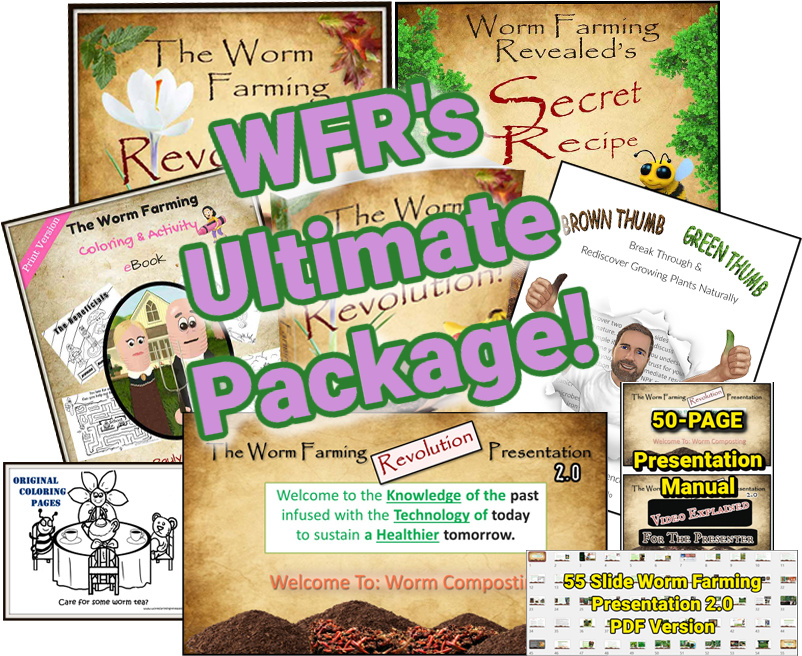
Nearly 1,000 Pages! Buy as a bundle or separately, or
Start A Worm Farming Business and Get it FREE (click here)
